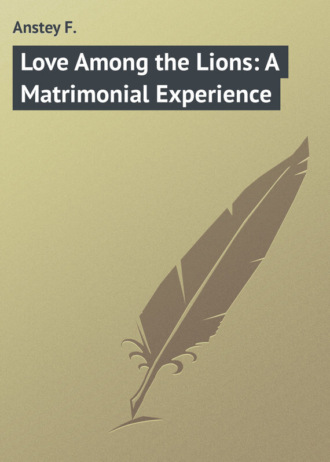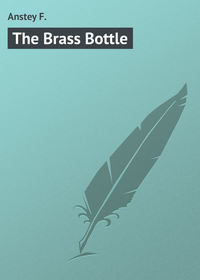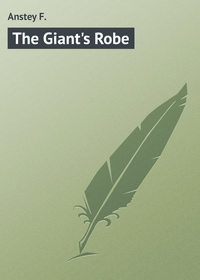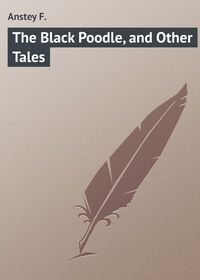
Love Among the Lions: A Matrimonial Experience
"And when am I to lose my sunbeam?" he asked. "Not just yet?"
"Theodore wishes to have the marriage as soon as possible," said Lurana, "by special licence."
"Have you settled where?" inquired Miss Rakestraw, with feminine interest in such details.
"Well," said Lurana slowly, evidently enjoying the effect she was producing, "Theodore and I have quite made up our minds to be married at the Menagerie – in the den of lions."
"How splendid!" exclaimed the lady journalist. "It's never been done over here. What a sensation it will make! I'll do a full descriptive report for all my papers!"
"That's what I call a real sporting way of getting spliced," said Chuck. "Only wish I'd thought of it myself before I had our banns put up, Ruth. First-rate idea of yours, Blenkinsop."
"Of course," I said, "if the Professor thinks it in the least unsafe – "
"Oh, it's safe enough," put in Chuck, who was a little too apt to volunteer his opinion. "Why, we've seen the lions, Professor; they're as quiet as lambs. And anyway, they'd have the lion-tamer in with them, you know. They'll be all right!"
"I think," said the Professor, "we may disregard the danger; but the expense – have you thought what it will cost, Theodore?"
"I have not," I said, "not till you mentioned it. It will probably be enormous, more than I could possibly afford – unless you are ready to go halves?" I concluded, feeling perfectly certain that he was ready to do nothing of the sort.
"But look here," said Chuck, "why should it cost you anything? If you go the right way about it, you ought to get all your expenses paid by the circus, and a share of the gate-money into the bargain."
"Oh, Mr Chuck!" cried Lurana, "how clever of you to think of that! wasn't it, Theodore?"
I could have kicked Chuck, but I said it was a stroke of positive genius.
"That's simple enough," he said. "The rock I see ahead is getting the special licence. You see, if you want to marry anywhere else than in a certified place of worship or a registry office, you must first satisfy the Archbishop of Canterbury, or the Surrogate, or whoever the old Josser is at Doctors' Commons who looks after these things, that it's a 'convenient place' within the Marriage Act of 1836. Now, the point is, will a cage of lions strike them as coming under that description?"
If it should, the ecclesiastical notions of convenience must be more than peculiar. For the first time I realised what an able fellow Chuck was.
"My dear Chuck!" I said, "what a marvellous knowledge you have of law! You've hit the weak spot. It would be perfectly hopeless to make such an application. It's a pity, but we must give it up, that's all – we must give it up."
"Then," said Lurana, "we must give up any marriage at all, for I certainly don't intend to marry anywhere else."
"After all," said the irrepressible Chuck, "all you need apply for is a licence to marry in the Agricultural Hall; they won't want to know the exact spot. I tell you what, you go and talk it over with the circus people and fix the day, and I'll go up to Doctors' Commons and get round 'em somehow. You leave it to me."
"Do you know," said the Professor, beaming, "I really begin to think this idea of yours can be carried out quite comfortably after all, Theodore. It certainly has the attraction of novelty, besides being safe, and even, it may be, remunerative. To a true lover, a lions' cage may be as fit a temple of Hymen as any other structure, and their roars be gentle as the ring-dove's coo. Go and see these people the first thing tomorrow, and no doubt you will be able to come to terms with them."
This I agreed to do, and Lurana insisted on coming with me. Miss Rakestraw was in ecstasies over our proposal, and undertook to what she called "boom the wedding for all it was worth" in every paper with which she had any connection, and with other more influential organs to which the possession of such exclusive intelligence as hers would procure her the entrée.
By the end of the evening she had completely turned Lurana's head, and even I myself was not quite untouched by the general enthusiasm. It seemed to me that being married in a den of lions might not be such bad fun after all.
When I awoke next morning with the dawning recollection of what I was in for, the glamour had in a great measure departed from the idea, which seemed to me at best but a foolish piece of bravado. It had been arranged that I should call for Lurana immediately after breakfast, and interview the circus proprietors on my way to business, and I rather expected to find that the night had borne counsel to her as well as myself; but she was in exuberant spirits, and as keen about the project as ever, so I thought it better not to betray that my own ardour had abated.
But what, after all, were we going to request? That these people should allow their lions to be inconvenienced, quite unnecessarily, by a wedding in their cage between two perfect strangers who had all London to choose from!
I believed that they would decline to entertain the suggestion for a moment, and, if so, I could not blame them. I felt that they would have both right and reason on their side.
On arriving at the Hall, we inquired for Mr Wooker or Mr Sawkins, and were requested to wait, which we did in a draughty passage smelling strongly of stables, while loud snorting and wheezing reached our ears from the arena, where they seemed to be exercising the circus stud.
At last we were told that Mr Sawkins would see us (I don't know to this day whether Mr Wooker had any real existence or not), and were shown up to his office, which did not differ from any other office, except that it had a gaudy circus poster and a bill announcing the sale by auction of some rival menagerie pinned against the wall. As for Mr Sawkins, he was a florid, jowly man, with the remnants of his hair dyed and parted down the middle, a kind of amalgam of a country job-master and the dignified person who bows customers into chairs in a fashionable draper's establishment.
He heard Lurana, who acted as spokeswoman, with magisterial gravity, and, to my surprise, without appearing to regard us as a pair of morbid maniacs.
"There's no denying," he said, "that the thing would draw if properly billed, always supposing, mind you, that it's capable of being done at all. And the only person able to give an opinion about that is Mr Onion, the gentleman," he explained, "who is our Lion King. He spells his name 'Niono' professionally, which gives it more of an African flavour, if you follow my meaning. I'll call down the tube for him."
I awaited Mr Onion's arrival with impatience. He presently made his appearance in a short-braided tunic, with black lamb's wool round the collar and cuffs. By daylight his countenance, though far from ill-looking, was sallow and seamed; there was a glance of admiration in his bold, dark eyes as they rested on Lurana's spirited face.
"Well," he decided, after the case had been explained to him, "if the lady's as game as she seems, and the gentleman likewise, I don't see any objection. Along with me, there'll be no more danger than if it was a cage of white mice – provided you've the nerve for it."
Lurana said proudly that her own mother had been an accomplished animal trainer – she did not mention the kind of animals – and that she herself was quite incapable of being afraid of a lion.
"If you've got nerve," said Mr Niono, "you're right enough, but you can't create it; it's a gift. Take me. I'm hardly ever away from my animals. I get downright impatient for every performance. But if ever I got the feeling that I was afraid of them lions or they weren't afraid o' me, do you think I'd trust myself inside that cage? No fear! They've left their marks on me as it is – my 'trade marks,' as I call 'em – see!" and here he bared his arm and exhibited some fearful scars; "but that's affection, that is."
He then offered to introduce us to his pets, and I should have accompanied Lurana to see the cage, only on the way we met Mlle. Léonie, to whom Mr Sawkins presented me, and, naturally, I was compelled to stop. She was a piquant-looking woman, not quite in her first youth, perhaps, but still attractive, and with the indescribable, airy grace of a Parisian, though I believe she came from Belgium. Mademoiselle was charmed with our project, complimented me upon my Britannic phlegm, and predicted that I should find the little experience "all," as she put it, "that there was of the most agreeable," which I devoutly hoped would be the case.
We were still chatting when Lurana returned, enraptured with the lions, one of whom had actually allowed her to tickle him behind the ear. Niono testified that her nerve, at all events, was beyond question. She was anxious that I should go and tickle the lion, too; but this I declined, being occupied in talking to Mlle. Léonie at the time.
"There's one thing," said Mr Sawkins later, as we were discussing the arrangements, "we shouldn't object to paying for the special licence; but where are you going to find a parson to marry you? You must have a parson of some sort, you know."
Again Fate seemed to have interposed an insurmountable barrier between us and our desire. I had to admit that it would be difficult, if not impossible, to find a clergyman courageous enough to enter the cage with us.
"Well, there's no call for him to be inside of it," said Mr Niono, who was with us, heart and soul, by this time. "In fact, the lady and yourself are about as many as I could undertake to be answerable for. We could rig him up a perch outside to read the service from, comfortable."
Even so, I said, I was afraid that it was hardly a service one could ask any divine to perform.
"I know a party who'd jump at it," said Mr Niono, who was full of resource. "The Reverend Skipworth. You know who I mean, Sawkins. Little chap in a check suit and goggles I introduced to you at the bar the other evening – always dropping in, he is. He'd do it, just for the lark of the thing. And he's a regular professional, you know," he added for my benefit, "though he don't sport a white choker in his off hours; likes to go about and see life for himself, and quite right. You get the licence, sir, and I'll guarantee that the Reverend Ninian Skipworth will do the job for you."
So we left the hall, delighted, especially Lurana, with the unexpected ease with which our object had been attained. It had seemed at first the wildest extravagance, and now there was apparently every prospect that Lurana and I would really exchange our marriage vows in a den of forest-bred lions, unless (which, of course, was a possibility that had to be taken into account) the ecclesiastical authorities should refuse to grant a special licence.
I was unable to apply in person at Doctors' Commons, for Lurana insisted that I should leave the whole matter in Chuck's hands, but I impressed upon him the necessity of absolute candour with the officials.
Whether he told them all, whether they were remiss in making full inquiry, or whether – as I would rather not think – he intentionally deceived them, I cannot say, but at all events he came back triumphantly with the special licence.
Wooker and Sawkins had fixed an early date, and wished the wedding to take place at night, so as to figure in the evening programme, but the Surrogate, or somebody at the office, had insisted that it must be in the afternoon, which would, of course, oblige Mr Sawkins to introduce it at a matinée performance.
Miss Rakestraw proved herself a born journalist. She placed her news at the disposal of an enterprising evening journal, whose bills that very same evening came out with startling and alliterative headlines such as:
Love Laughs at Lions!Canonbury Couple to Marry in Cageful of Carnivoraand from that moment, as the reader will recollect, Lurana and I became public characters.
There were portraits – quite unrecognisable – of us in several of the illustrated weeklies, together with sketches of and interviews with us both, contributed by Miss Ruth's facile stylograph, and an account of the Professor, contributed by himself.
As for the daily papers there was scarcely one, from the Times downwards, which did not contain a leader, a paragraph, or a letter on the subject of our contemplated wedding. Some denounced me violently for foolhardy rashness, others for the selfishness with which I was encouraging an impressionable girl to risk her life to gratify my masculine vanity. Several indignantly demanded whether it was true that the Archbishop had sanctioned such a scandalous abuse of marriage rites, and if so, what the Home Office were about?
There was a risk that all this publicity would end in the authorities being compelled to interfere and countermand the ceremony, and yet I cannot honestly say that I disliked the fuss that was made about it. In the City, to be sure, I had to put up with a certain amount of chaff; facetious inquiries as to whether I intended to present the leonine bridesmaids with bones or pieces of raw meat, and the precise locality in which my wife and I thought of spending our honeymoon. But such badinage covered a very genuine respect for my intrepidity, and I was looked upon as a credit to the tea trade.
The appointed day was getting nearer and nearer, and still – so wonderfully did Fortune befriend us – the authorities gave no sign of any intention to interfere. Parliament had not yet reassembled, so no one could rise and put a question in the House to the Home Secretary, and if Government officials ever read the morning papers, it seemed that they did not feel called upon to take cognisance of anything they read there, unless compelled to do so by pressure from without.
Nor did the Archbishop take any steps. No doubt he may have been unaware of the precise conditions under which the ceremony was to be sanctioned, and the same remark applies to the Bishop of London. It is true that their attention was drawn to the facts by more than one postcard, as I have reason to know. But some people make a practice – and it is not for me to condemn them – of taking no notice of anonymous communications.
However, as the time drew on, I thought it would be only proper on my part to go and call upon the Reverend Ninian Skipworth, the curate with whom our energetic friend, Mr Niono, had now made all the necessary arrangements, and find out, quietly, what his state of mind was. He might be wavering, in which case I should have to strengthen his resolution. Or he might not yet have realised all the possible consequences of his good nature, and if so, I should not be acting fairly towards him if I did not lay them before him, even though the result should be that he withdrew from his engagement.
Niono had given me his address, and I looked in at the curate's unpretentious lodgings one evening on my way home. I found him in, and as soon as he learnt my name, he offered me whisky and soda and a cigar with most unparsonical joviality.
The Reverend Ninian, I found, was a cleric of the broad-minded school which scorns conventional restrictions; he held that if the Church was to maintain its influence, it must follow the trend of modern progress, and neglect no opportunity of winning the hearts of the people. He was only sorry, he told me, that the prejudices of his Bishop would prevent him from reading the service inside the cage.
I replied gratefully that I was sufficiently indebted to him as it was, since if his connection with the affair reached the episcopal ear, he would be in serious danger of being suspended, even if he did not receive some still heavier punishment.
"Oh, don't you bother about that!" he said, cheerily; "it's awfully good of you to trouble yourself on my account; but if the Bishop is such an old stick-in-the-mud as to haul me up for a little thing like this, I shall simply chuck up the Church altogether, that's all! In fact, I've almost decided to do it in any case, for I believe I could do more real good outside the Establishment than in. And I admire your pluck, my dear fellow, and your manly straightforwardness in coming here like this; and I'm hanged if I don't marry you and chance the consequences, so don't say another word about it."
I didn't, though I need not say I was profoundly moved by the genuine sympathy and assistance which our project seemed to inspire in the most unexpected quarters.
My one anxiety now was about Lurana. Outwardly she appeared cheerful and even gay, and thoroughly to enjoy her position as the heroine of the hour; but how could I be sure that this was genuine and not a highstrung hysterical self-repression which would be succeeded by a violent reaction, it might be in the lions' cage itself?
From that at all hazards she must be saved. Earnestly, seriously, I pointed out how much would depend on her maintaining perfect coolness and composure during the ceremony, and implored her, if she felt the slightest misgivings, the smallest tendency to shrink in secret from the coming ordeal, not to allow any false pride to close her lips. There was still time, I reminded her. If on second thoughts, she preferred to be married in the old time-honoured way, instead of in a Menagerie den, she had only to say so. Her happiness and comfort were the chief things to consider.
"Withdraw now, Theodore?" she said, "after announcing it in all the papers! Why, how could we?"
"I would take all that upon myself," I told her; "I need only say that you don't feel quite equal to facing lions."
"But I do, Theodore," she said, "the dear, ducky, pussy-faced old things! Who could possibly be afraid of lions – especially with Mr Niono to protect us?"
"If you knew more about lions, Lurana," I said, "you would know how liable they are to sudden rages, and how little even lion-tamers themselves – "
"If you go on like that, Theodore," she said, "I shall begin to think that you want to frighten me – and even that you are just a little frightened yourself. But I'm not to be frightened. I should not be my mother's daughter if I had any fear of animals. And once for all, you will either marry me in the lions' cage or not at all!"
I saw that I should only be exposing myself to further misunderstanding if I pursued the subject. Lurana had that quality of courage which springs from a total lack of imagination; she had never seen a performing lion ramp and roar, and it was inconceivable to her that one could ever indulge in such exercises. Still less did she understand that there is another type of courage, which sees all the difficulties and dangers beforehand, even exaggerated by distance, and yet advances calmly and undauntedly to encounter them. My courage was of that sort, and it is generally admitted that it belongs to a far higher order than the other.
Now that the die was cast I found myself anticipating the eventful day with philosophic equanimity. It was an uncomfortable method of getting married, no doubt, but after all, what man ever was comfortable at his own wedding?
And surely one crowded quarter-of-an-hour (for it would certainly be crowded in that cage) of glorious life would be worth an age without Lurana – who was not to be won by any other means.
PART II
It was now the eve of my wedding-day, and it was generally taken for granted that Lurana and I would be allowed to enter the lion-cage without opposition from any quarter.
Whether we should find it as easy to come out again was a point on which opinions differed considerably, but the majority must have been confident that the ceremony would pass off without any unpleasant interruption – for the rush to obtain seats was tremendous.
I was just as tranquil and collected as ever; I could not detect that my valour had "ullaged," as wine-merchants say, in the slightest degree, though Lurana was perpetually questioning me as to whether I was sure I would not rather withdraw.
Of course, I indignantly repudiated the very idea, but it is well known that a perfectly sober person, if suddenly taxed with being drunk, will seem and even feel so, and it is much the same with any imputation of cowardice.
I began to think that constant tea tasting, even though the infusions are not actually swallowed, probably has some subtle effect upon the nervous system, and that it would brace me up and also show me how little cause I had to be uneasy, if I dropped into the Agricultural Hall once more and saw Niono put his lions through their performances.
So I left the City early that afternoon and paid for my admission to the hall like an ordinary sightseer; I did not ask Lurana to accompany me, because I knew she must have plenty to keep her at home just then.
I was just in time for the performing lions, and found a place in the outer edge of the crowd; it was strange to stand there unrecognised and hear myself being freely discussed by all around; strange and decidedly exhilarating, too, to think that in another twenty-four hours I should be, not a spectator of what was to take place in that arena, but one of the principal performers, the centre of breathless interest, the hero of the hour!
But with the appearance of the cage, this unnatural exhilaration suddenly died down. It was not so much the lions, though they struck me as larger and less easy-tempered than on the first occasion, while the lioness was as nearly in open revolt as she dared. What troubled me most was that the cage contained another inmate, one whom I did not remember to have seen before – a magnificent specimen of the Bengal tiger.
It seemed perfectly clear to me that the brute was only about half-trained; he went through his tricks in a sullen perfunctory way, with a savage, snurring snap every now and then, which, even at that distance, made my flesh creep.
And, whenever he snapped, clouds of steam issued from his great jaws; I could see, too, that the lioness was secretly egging him on to fresh acts of defiance, and that he was only watching his opportunity to crouch and spring as soon as Niono's back was turned.
I was perfectly determined that I would not have that tiger at my wedding; he would never keep still for a moment; he would upset all the other animals, and how could I be expected to remain cool with a great, hot, steaming beast like that at my elbow? Why, he must raise the temperature of that cage to the atmosphere of a Turkish bath! For Lurana's sake as well as my own, I really must draw the line at tigers – they were not in the bond.
Another thing that annoyed me was the senseless tomfoolery of the clowns, who persisted in running after the cage at the conclusion of the performance, and teasing the poor defenceless animals by making grimaces and dashing their ridiculous conical hats against the bars. It was painful to think that any one could be found to smile at such cheap buffoonery – if I had been the ring-master, I would have given those cowardly idiots a taste of the whip!
I decided to go round afterwards and see Onion about that tiger.
I did not see the lion-tamer, as he had just left the hall, and Mr Sawkins, I was told, was engaged, but I saw Mlle. Léonie, who was most friendly.
I remarked, carelessly, that I saw they had put a tiger into the cage.
Mademoiselle said he was a member of the troupe, but had been indisposed and temporarily transferred to the hospital cage.
I hinted that a tiger, however convalescent, was hardly a desirable addition to our wedding party. Mademoiselle was astounded; a so gracious beast, a veritable treasure, with him present, the ceremony would have a style, a cachet, an elegance. Without him – ah! bah! it would be triste– banal, tame!
I admitted this, but urged that we were quiet people who wanted to be married as quietly as possible, and that a tiger, for persons in our condition of life, was a ridiculous piece of ostentation. It was always better to begin as one meant to go on.
She differed from me totally. I was too modest, for, of course, it was incredible that I, who was so full of sangfroid, could object to the tiger for any other reason?
"Personally," I replied, "I had no prejudice against tigers whatever – but Mademoiselle would understand that I was bound to consider another person's convenience."









